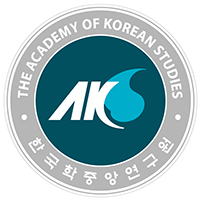Professor Amalia Arvaniti, Head of the Department of English Language and Linguistics, has been awarded a 12-month Academy of Korean Studies grant to conduct a research project entitled ‘An Experimental Investigation of Prominence and Rhythm in Korean’. Amalia will be collaborating on this project with Dr Hae-Sung Jeon (University of Central Lancashire). The award covers research assistance and travel.
The project will test a hypothesis based on Amalia’s previous cross-linguistic research on rhythm and is informed by Hae-Sung’s results on Korean prosody. Speech rhythm is a poorly understood phenomenon that has been investigated largely on the basis of a small set of closely related European languages; despite its elusive nature, rhythm is considered essential for language acquisition, speech production and language processing. Korean is a good test case as it is typologically unusual: it has neither stress (as in, for example, English), nor pitch accent (as in Japanese) phenomena that are said to be essential for the creation of rhythm. The researchers will be investigating whether the accentual phrase, a constituent larger than a word but smaller than a typical phrase in languages like English, is the basic rhythmic unit in Korean by testing experimentally whether manipulations in the size and composition of accentual phrases affect speech processing by native Korean speakers. The results will shed light on the nature of speech rhythm by providing an understanding of how rhythm works in a language that has proved so far impossible to classify.
For more information on the Academy of Korean Studies, please see its website here:
http://intl.aks.ac.kr/english/portal.php

